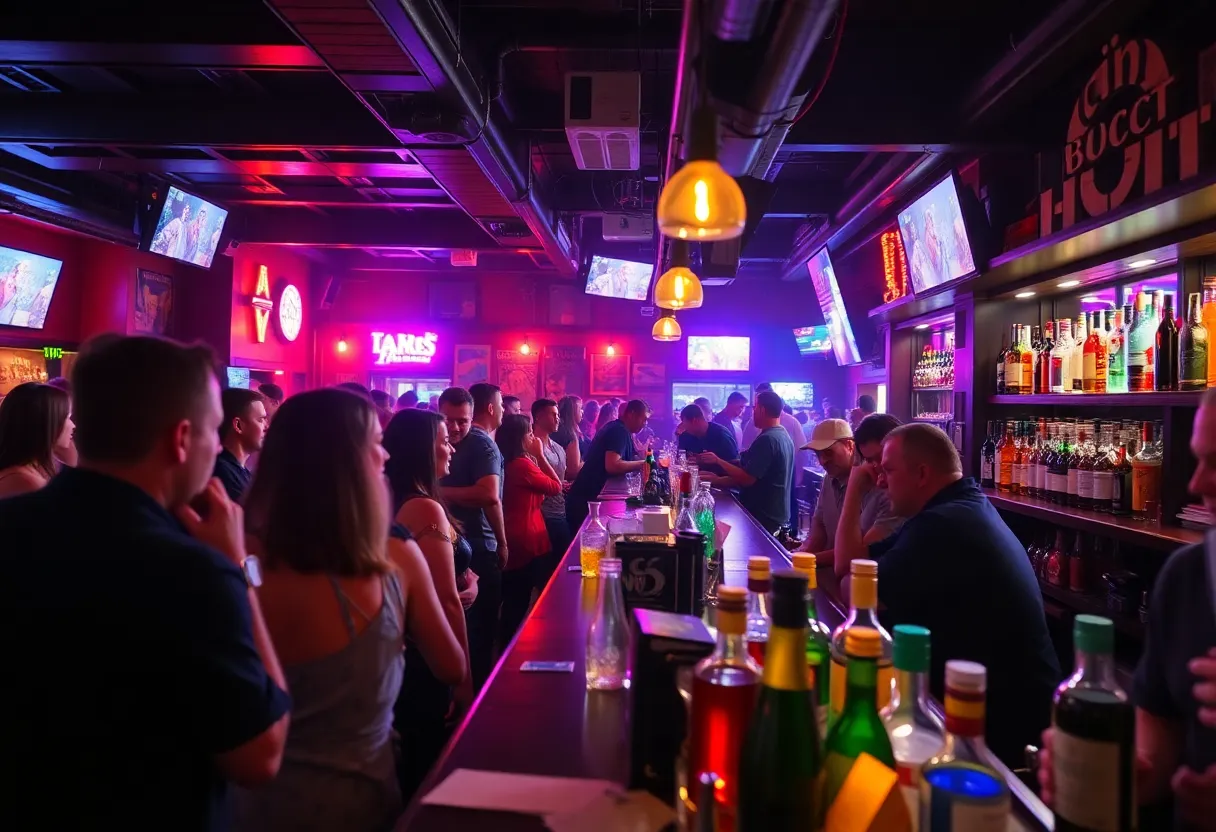

A vibrant bar scene in Michigan highlighting the booming liquor sales in 2024.
Want to target the right audience? Sponsor our site and choose your specific industry to connect with a relevant audience.
Prominent brand mentions across targeted, industry-focused articles
High-visibility placements that speak directly to an engaged local audience
Guaranteed coverage that maximizes exposure and reinforces your brand presence
Interested in seeing what sponsored content looks like on our platform?
May’s Roofing & Contracting
Forwal Construction
NSC Clips
Real Internet Sales
Suited
Florida4Golf
Click the button below to sponsor our articles:
Sponsor Our ArticlesIn 2024, Michigan bars, restaurants, and retail stores spent nearly $1.9 billion on distilled spirits, marking a $7 million increase from 2023. Wayne County led in purchases with over $440 million. The robust hospitality sector, influenced by tourism and nightlife, continues to showcase a steady trend in liquor consumption across the state despite economic fluctuations.
Detroit – In a significant financial highlight for the hospitality industry, Michigan bars, restaurants, and retail stores collectively spent nearly $1.9 billion on distilled spirits in 2024. This substantial expenditure reflects the purchases made from the Michigan Liquor Control Commission (MLCC) and does not account for what these businesses ultimately sold to their customers. The reported figure indicates a modest increase of about $7 million compared to 2023, signaling a steady trend in liquor consumption across the state.
The majority of liquor sales were concentrated in Wayne County, which alone accounted for over $440 million in purchases, making it the top county in Michigan for liquor sales. This dominance is backed by the bustling nightlife and numerous establishments in the Detroit metropolitan area. Notably, Little Caesars Arena, located in Detroit, emerged as the leading venue for on-premise liquor sales, achieving over $1 million in sales, highlighting the significant role of large venues in driving liquor expenditure.
Across the state, there are over 12,000 businesses registered for liquor sales, showcasing a vast market driven by a variety of bars, restaurants, and stores. Many of these businesses reported noteworthy liquor purchases, with Ingham County’s Harper’s Restaurant and Brewpub topping its area by purchasing $296,464 in spirits. In Kent County, B.O.B. reached $519,494, while Washtenaw County’s Last Word recorded $288,002 in liquor purchases. In addition, Hillsdale Market House in Hillsdale County ranked among the highest sellers at $247,254.
The report also detailed that each county had a top bar ranked by liquor sales, reflecting the local flavor of each area’s nightlife. While counties like Mackinac demonstrated an average liquor sale of $466.29 per resident aged 21 and older, the concentration of high sales in areas with tourist activity suggests a link between tourism and liquor consumption. The more visitors an area attracts, the higher the liquor sales per resident, reinforcing the importance of the tourism industry to local businesses.
Among individual buyers, Total Wine in Novi stood out as the largest, having purchased over $12.4 million in spirits. The MLCC also handled more than $8 million in refunds in 2024, reflecting the regulatory environment under which Michigan operates as a “control state” for liquor. This classification means the state oversees the wholesale distribution of distilled spirits, a structure designed to regulate the market and ensure responsible consumption.
The report includes rankings of the top 25 bars and restaurants based on their liquor purchases, showcasing the competitive nature of the industry within Michigan. Many of the state’s largest liquor sales were reported in metro Detroit, with significant contributions also noted in Grand Rapids, East Lansing, and Ann Arbor. Overall, the statewide trend indicates that liquor sales have remained relatively stable since 2020, underscoring the resilience of the hospitality sector in the face of changing economic conditions.
As Michigan’s liquor market continues to evolve, the 2024 figures not only provide a glimpse into consumer behavior but also highlight the integral role of bars and restaurants in the local economy. The growth in expenditures reflects both the demand for social experiences and the ongoing recovery of the hospitality industry following previous economic challenges.
News Summary Executives from Rivian and Toyota emphasize the need for flexibility in the auto…
News Summary The Novi boys basketball team is gearing up for a challenging season, marked…
News Summary The Dexter community remembers Charles “Chuck” Savatsky, who passed away peacefully at home.…
How Can You Leverage the Power of Webinars to Connect with Your Audience? Introduction In…
News Summary Two U.S. Army soldiers, Sgt. 1st Class Emmett Wilfred Goodridge Jr. and Staff…
News Summary In light of recent U.S. military airstrikes on Iran’s nuclear sites, the Michigan…